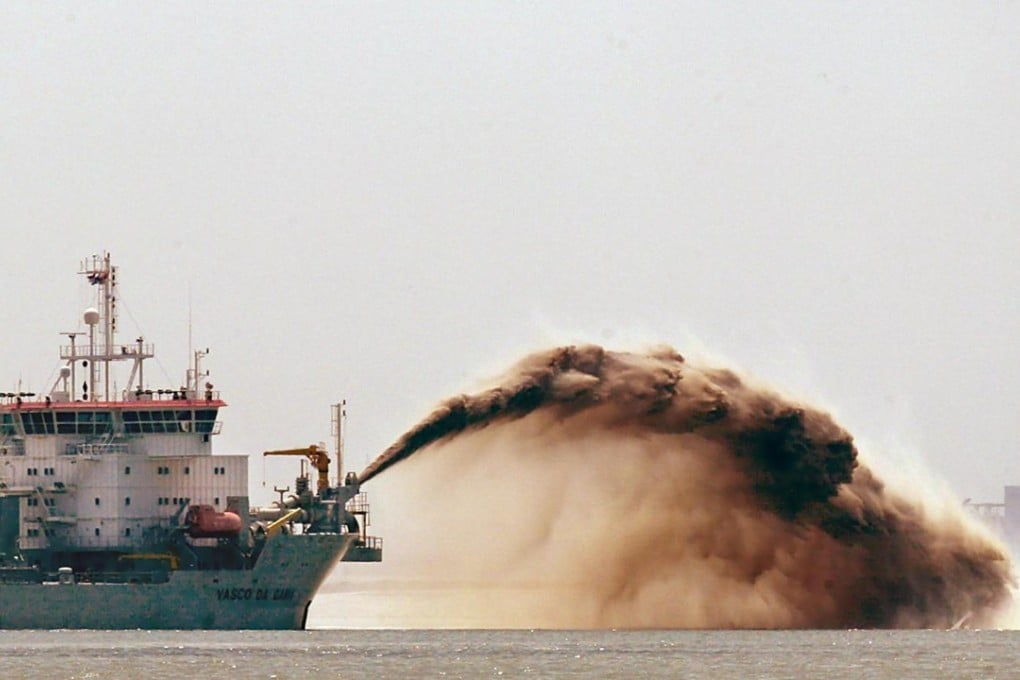The world is running out of a resource, and it’s not oil
A looming shortage of sand – a crucial resource once thought endless – could sink infrastructure projects, including those in China’s Belt and Road Initiative

But that quiet was shattered seven years ago as a wave of infrastructure projects began to swell, including the restoration of a railway that linked to the capital, the refurbishment of colonial buildings and the construction of a resort in nearby by Bokor Hill. The rapid development that followed created a need for raw materials, especially one: sand to make cement and concrete. And in the quiet Kampot, the sight of dredging barges, that extracted sand from the estuary of the river, became frequent.

While the money was rolling in – mostly on the black market – the government ignored calls from activists warning of the negative environmental and social effect of sand extraction. But an investigation in 2016 revealed that Singapore reported to have imported US$752 million in sand from Cambodia, but Cambodia only reported US$5.5 million in exports to the Lion City. This discrepancy forced officials to eventually halt all exports of sand in July after a public outcry.
“It was a systematic fraud”, says Alejandro Gonzalez-Davidson, co-founder of Mother Nature, an environmental group that spearheaded the inquiry. “Taxes were evaded for 95 per cent of the exports”.
Other countries in Asia, such as Indonesia and Vietnam, have also banned or restricted exports over the past couple of years because of the enormous environmental damage, while India has begun to limit licences it issues to export sand.